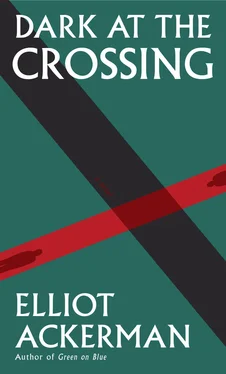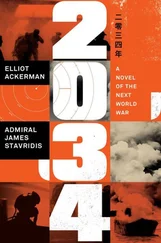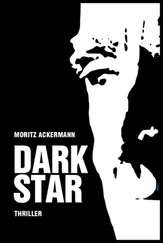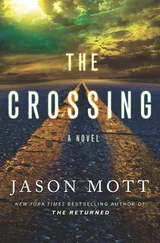Haris asked. The boy said nothing.
Jim twisted the arm a little harder.
“Huw maa ya’rif shay,” sobbed the boy’s mother.
“What’d she say?” Jim muttered.
“She said he doesn’t know,” answered Haris.
“I’ll break his fucking arm,” Jim said calmly. “Tell her.”
Jim twisted the wrist a little more. The boy’s legs flopped against the floor, his bare feet scuffing the ground, wild as a seizure. He cursed in a throaty voice that sounded like a man’s. Then it became quiet but for the boy’s panting and the scrape of his feet. Jim adjusted himself, planting his right boot between the boy’s neck and ear, gaining an extra bit of leverage. He pivoted toward the woman, as if giving her a last chance.
She hung her head.
Jim shifted his body over the boy, lifting the arm—
“He’s hiding in the yard,” said the woman.
Desperately, Haris translated.
Jim stopped.
He glanced beneath his boot. The boy’s face was clamped with a defeated sort of pain, an expression of pure hate.
Jim released the arm. It fell to the ground like a wet towel. He smiled at Haris, as if they’d accomplished something together, but set into Haris’s face was the same expression of pure hate.
“Tell them they’re free to go,” said Jim.
“What?” asked Haris.
“They’re free to go.”
“Free to go where?”
Jim didn’t answer. He went to search the yard.
This is their house, thought Haris. Free to go where?
—
He wasn’tthe boy’s father but grandfather. Jim had found the old man hiding in the yard. When they returned to Hurricane Point, Jim handed him over to the Military Police by his flex-cuffed wrists. He also handed off the names of everyone in the house, including the boy: Kareem Tamad. Before the MPs dragged off the old man, a few of the guys snapped photos around him, striking triumphant poses with their prisoner in the parking lot. They planned to send them to their sister team, proof of a job well done.
“What’s a matter, Abadi?” Jim had asked. The two sat next to each other on a sofa in the team room. Jim shoveled heaping spoonfuls of cornflakes into his mouth while Haris’s bowl of cereal sat in front of him, turning soggy.
Haris took off Jim’s rain jacket and set it on the sofa between them.
“The kid’ll be fine.”
Haris pushed his bowl away.
“We probably just saved somebody’s life,” Jim added, “maybe yours.”
“You think so, don’t you?”
“I know so.” Jim drank down his milk and left the empty bowl on the coffee table in front of them. “Keep the damn jacket,” he said and then walked back to his room to sleep.
Haris cleaned up Jim’s dishes and his own.
Two days later, Haris received an email from ABB Ltd., the company he contracted for. Jim had filled out the paperwork for a five-thousand-dollar performance bonus for Haris’s critical role in detaining the bomb maker. Haris took the money and swore that as soon as he’d saved enough he would leave the war.
A week later another IED went off, also using a baby monitor as a trigger.
A couple of days after that, the MPs found Jim in the mess tent at dinner and told him they’d be releasing the old man. Jim looked over at Haris, but he didn’t hum “Jessica,” or ask for Haris to return the performance bonus — Jim didn’t ask anything.
Outside it had started to rain again.
Jim stood and headed back to the team room. Haris tossed his food away and followed at a run, zipping up the camouflage jacket Jim had given him, the one he had decided to keep. The one that hung in the closet of the home he had made, for a time, with Samia.
Amir’s apartment was on the fourth floor, just off Yusuf Bulvari. Its smog-clouded windowpanes looked down on Antep City Park, which ran like a landing strip of greenery through the ramshackle tenements and traffic-clogged streets. Beneath the canopied elms of the park, Syrians panhandled or rummaged through garbage cans emptied by the municipality with cruel efficiency. On the far side of the park, a tram carried commuters to work. Its electric lines hung dangerously low, in need of tightening. Current flowed through them with unequal voltage, sparking at the circuit joints. From the apartment’s window, the sparks could be seen in the distance.
“Looks like muzzle flashes,” said Amir. He set a bag of gas station snacks he’d bought Haris on top of a dresser by the window and then dug through its drawers. A mirror covered the apartment’s back wall, creating the illusion of more space. He watched Haris through its reflection.
Haris had been gazing out the window, lost in thought.
Amir set a pair of khakis and a gray cable-knit sweater, heavy like his blue one, on the armrest of a lumpy sofa bed. The living room was nothing more than the sofa bed and a small flat-screen television perched on a glass console. Flickering across the screen, the BBC ran on mute. It had been on when they’d arrived at the apartment an hour before. It seemed Amir never turned it off, as if he waited for some piece of breaking news. The apartment had no real kitchen, just a counter and sink in the corner with a mini-refrigerator plugged in next to the door. On top of the fridge was a hot plate.
Amir washed his hands and face in the sink. He sprinkled water in his black curls, running his fingers through his hair. “Take those clothes,” he said. “You can change and wash up in the bedroom.”
“Thank you.”
“I also arrived with nothing. With your English, you might be the first person I’ve met since coming here who I can actually help.”
Haris cradled the khakis and sweater beneath his arm, shutting the door. He set the clothes on an ottoman at the foot of the bed and stepped into the small adjoining bathroom with a phone-booth shower. He ran his hand under the water. It came out cold, and Haris returned to the bedroom, waiting for it to warm. On the side of the mussed bed by the window among some lipsticks and a hairbrush, a studio portrait of a little girl sat atop a stool. Through a half-drawn shade, the evening dumped its orange light on the photograph. Haris guessed the girl was about four. Thick braids woven with ribbons hung to her shoulders, the hair very black like Amir’s. She had a wide face and strong jaw, one that held a smile’s weight well. She was possibly handsome though certainly not beautiful. Her dark skin matched her hair, and her eyes were blue, perfectly so.
Stacked next to the girl’s portrait were a dozen or so notebooks — spiral, leather-bound, Moleskine. Haris noticed one wedged partly open. He lifted it, and a few photographs tumbled from between its pages: the girl growing through her first years, faded portraits of uncles and grandparents. Then Haris came to a photo that seemed out of place among the family snapshots: an abandoned lot planted with crumbling headstones, a little huddled mound unmarked in center frame. He stared at the mound. On the Polaroid’s tab, written in long, snaking Arabic, was the name of a road intersection: Al Maysar — Al Jalaa. He tucked the photos back inside the notebook, where blue ink crossed its pages, a desperate scrawl in French.
In the living room, Amir turned up the BBC.
Steam from the shower billowed out the bathroom door. Haris gathered his clothes, noticing the other side of the bed. A folded sheet ran across the top of the blanket. An unwrinkled pillow leaned against the headboard. It looked as if no one had slept there in a while. Neatly arranged on a stool by the pillow stood an alarm clock, a rubber-banded stack of business cards, and a single volume: Responsible Conduct of Research by Dr. Adil E. Shamoo, the thick text annotated with multicolored Post-its.
Читать дальше












